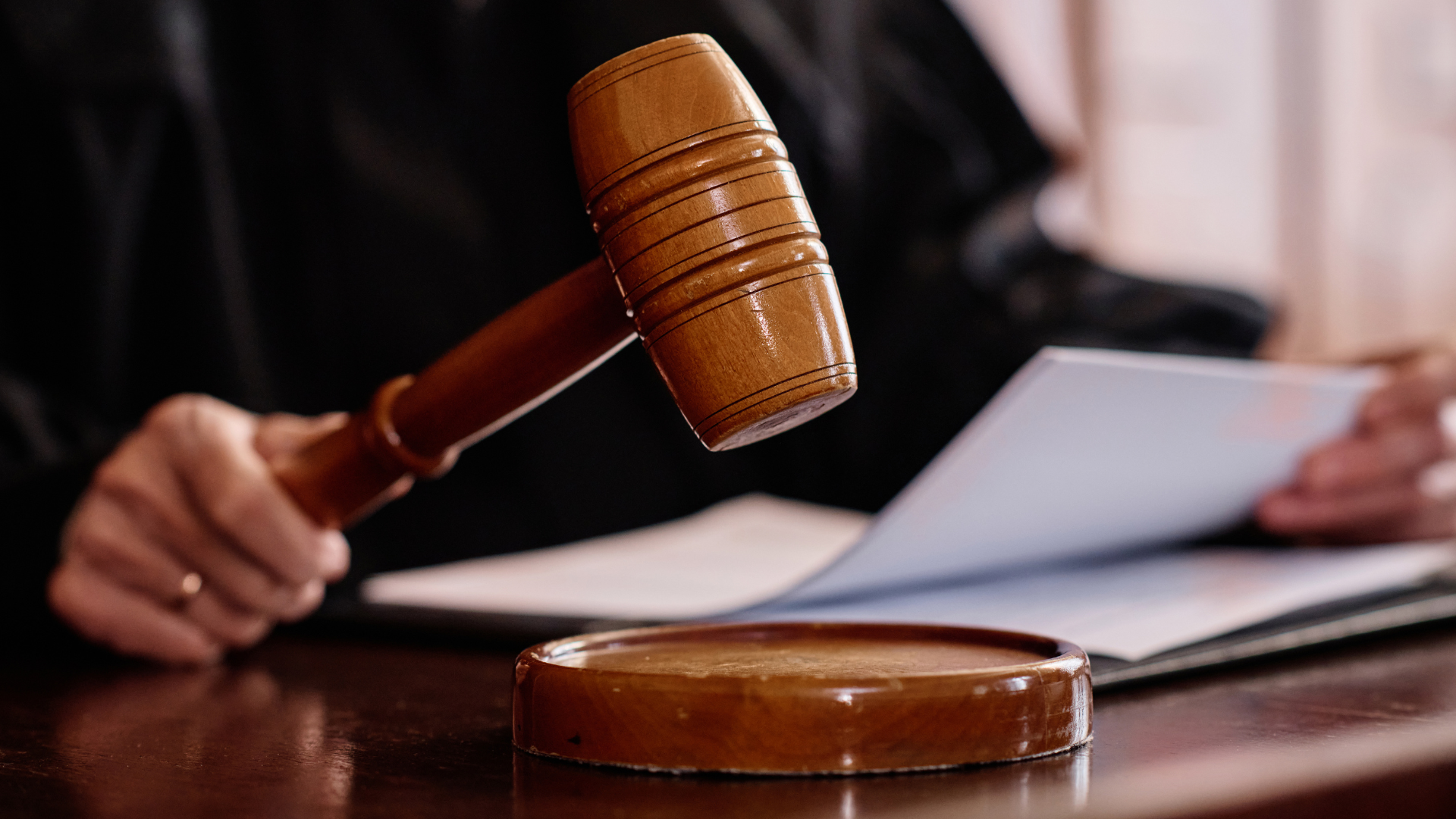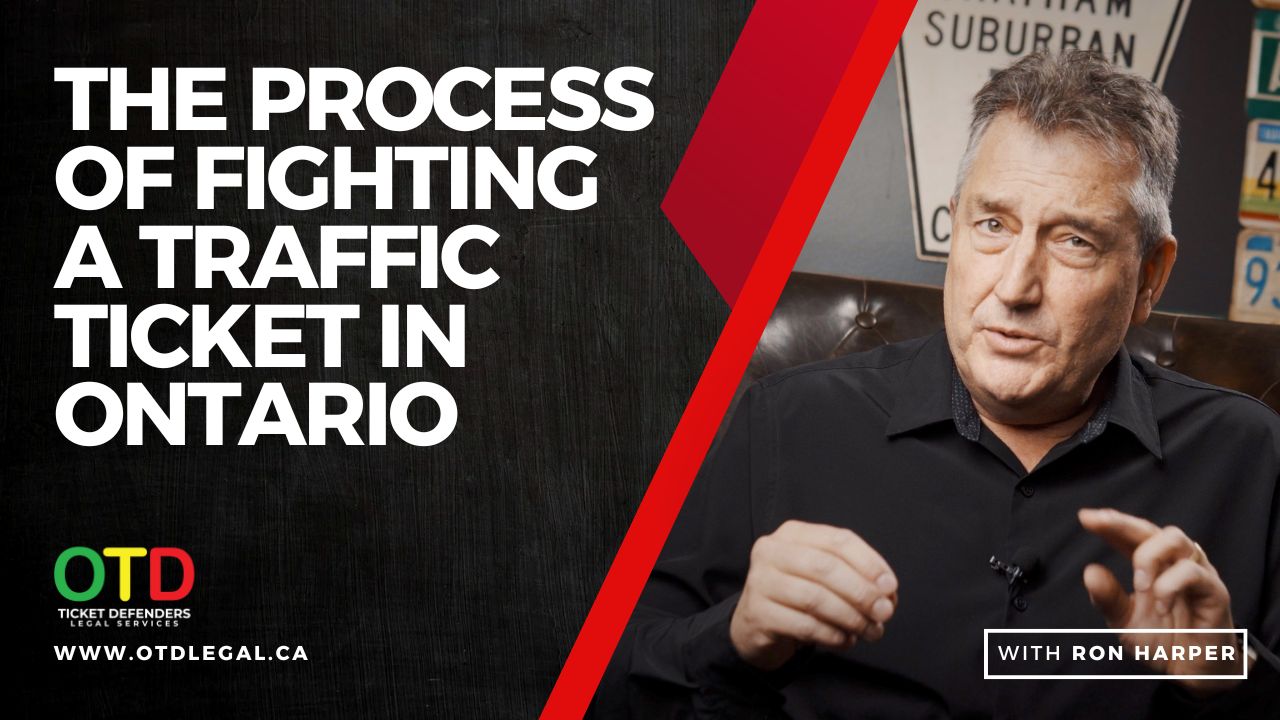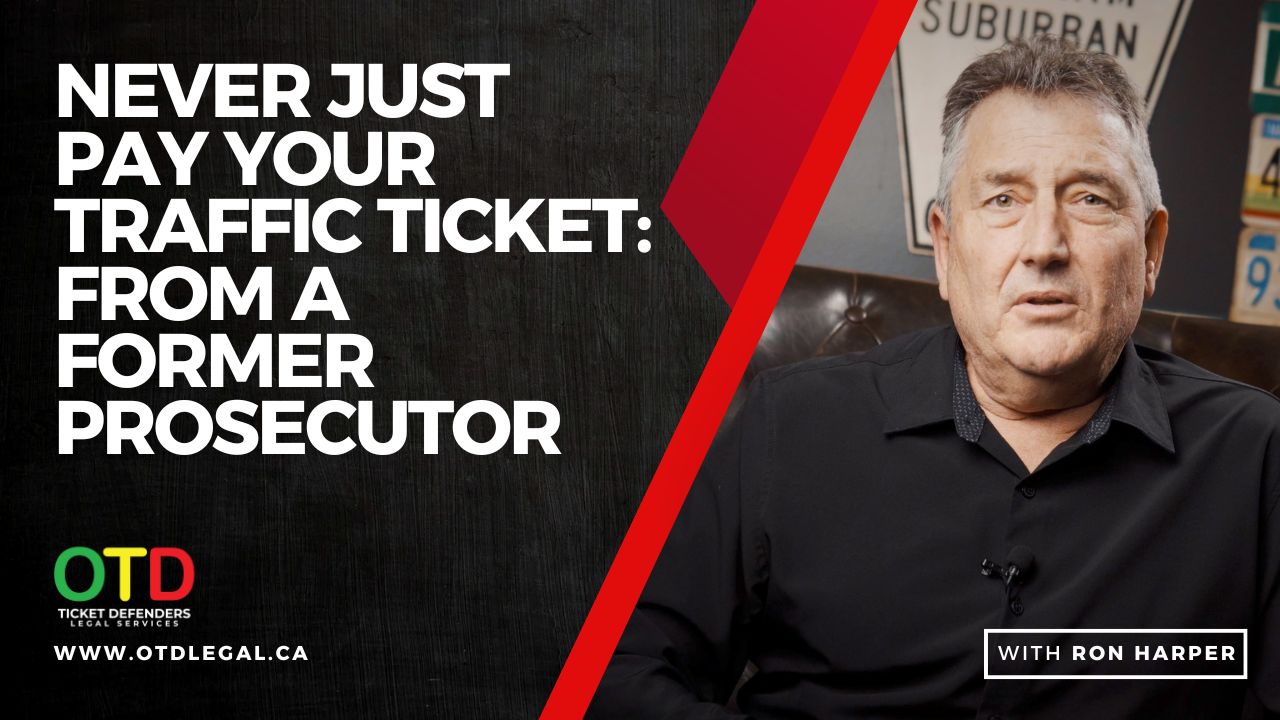Hoping for the best outcome in Ontario traffic court? Success is possible – but it depends on more than just showing up.
- The most favorable results include full dismissal of the charge, withdrawal before trial, or reduced charges with lower fines and no demerit points.
- Achieving these outcomes relies heavily on the strength of your case, the quality of evidence, and whether you have skilled legal representation.
Sometimes, a “win” isn’t just getting the ticket thrown out – it might mean avoiding a licence suspension, protecting your commercial driver’s licence, or preserving a clean record for immigration purposes.
There’s no one-size-fits-all solution, so it’s crucial to understand your legal options and set realistic expectations based on your circumstances. - Working with an experienced traffic lawyer or paralegal can greatly improve your chances of reaching the best possible outcome.
Bottom line: The best result in traffic court varies for everyone – but with the right approach and representation, you can protect what matters most.
Keep reading to learn how to assess your case and pursue the outcome that’s right for you.
When you’re facing a traffic ticket in Ontario, your mind probably jumps straight to the worst-case scenario: hefty fines, demerit points, insurance rate increases, and potentially even licence suspension. But what about the flip side? What’s the absolute best outcome you can hope for when you decide to fight your ticket in traffic court?
The answer might surprise you. While nobody can guarantee specific results in traffic court, there are several highly favourable outcomes that happen more often than you might think. Understanding these possibilities – and what it takes to achieve them – can help you make informed decisions about whether to fight your ticket and how to approach your defence.
Let’s explore the range of positive outcomes available in Ontario’s traffic court system and what factors influence your chances of success.
Understanding the Range of Possible Outcomes
Before diving into best-case scenarios, it’s important to understand that traffic court outcomes exist on a spectrum. The results aren’t simply “guilty” or “not guilty” – there are numerous possibilities between those extremes.
It’s Not Always All or Nothing
Many people assume that fighting a traffic ticket means you either win completely or face the full penalty. In reality, Ontario’s Provincial Offences court system offers several middle-ground outcomes that can significantly reduce the impact on your driving record and wallet.
Complete victory scenarios:
- Full dismissal with no penalties
- Charges withdrawn before trial
- Not guilty verdict after trial
Partial victory scenarios:
- Reduced charges with lower fines
- Reduced or eliminated demerit points
- Alternative penalties like driver education courses
Damage control scenarios:
- Fine reduction while maintaining the conviction
- Time to pay arrangements
- Avoiding licence suspension despite the conviction
The key is understanding that even “partial victories” can save you hundreds of dollars and protect your driving record from more serious consequences.
What Success Looks Like Depends on Your Charge
Your definition of “best outcome” will vary significantly depending on what you’re charged with and your personal circumstances.
For speeding tickets: The best outcome is typically complete dismissal or reduction to a non-demerit point charge. Even small reductions in speed can eliminate demerit points – for example, reducing a 25 km/h over charge to 15 km/h over eliminates all demerit points.
For serious charges like careless driving: Success might mean avoiding the 6 demerit points and potential licence suspension, even if you end up with a lesser conviction.
For commercial drivers: Protecting your Commercial Vehicle Operator’s Registration (CVOR) might be more important than the fine amount.
For new Canadians: Maintaining a completely clean driving record might be crucial for immigration or employment purposes.
Best-Case Scenarios in Traffic Court
Let’s examine the absolute best outcomes you can achieve in Ontario traffic court and what circumstances typically lead to these results.
Full Dismissal – No Fine, No Points
A complete dismissal means the judge finds you not guilty, resulting in no fine, no demerit points, and no conviction on your record. This is the gold standard of traffic court outcomes.
How dismissals happen:
- Insufficient evidence: The Crown fails to prove the charge beyond a reasonable doubt
- Procedural errors: Police didn’t follow proper procedures during the stop or ticket issuance
- Equipment problems: Radar/laser devices weren’t properly calibrated or maintained
- Charter violations: Your rights were violated during the traffic stop
- Officer credibility issues: Inconsistencies in the officer’s testimony or notes
Real-world example: You’re charged with speeding based on radar evidence, but your legal representative discovers the radar device wasn’t calibrated according to manufacturer specifications. The evidence becomes unreliable, leading to dismissal.
Charge Withdrawn or Dropped Before Trial
When charges are withdrawn, the Crown prosecutor decides not to proceed with the case. This outcome is technically even better than a dismissal because it happens before you’re formally tried.
Common reasons for withdrawal:
- Witness non-appearance: A key witness doesn’t show up for court
- Fatal errors on the ticket: Incorrect information that can’t be amended
- Weak case assessment: The prosecutor determines the evidence is insufficient
- Disclosure problems: Required evidence isn’t available or properly documented
- Charter issues: Potential rights violations make the case unwinnable
Important note: Experienced legal professionals know how to identify these opportunities early and can sometimes negotiate withdrawals early in the process or during early resolution meetings.
Reduced Charge – Lower Fine and No Demerit Points
Charge reduction is often the most realistic positive outcome, especially when the evidence against you is strong but there are mitigating circumstances.
Common reductions:
- Speeding charges reduced to non-demerit point levels
- Careless driving reduced to a minor violation
- Distracted driving reduced to a lower-penalty charge
- Multiple charges consolidated into a single lesser charge
How reductions may be achieved:
- Early resolution meetings: Negotiating with prosecutors before trial
- Plea bargaining: Trading a guilty plea for reduced penalties
- Demonstrating good driving record: First-time offenders often receive more lenient treatment
- Showing genuine remorse: Taking responsibility while explaining circumstances
Probation Order (in rare cases)
For certain serious traffic charges, particularly those involving serious charges, courts sometimes offer a probation order as an alternative to conviction.
What a probation order involves:
- Agreement to follow specific conditions for a set period
- No admission of guilt
- No conviction if conditions are met
- Possible requirement for driver education or counselling
When probation orders are considered:
- First-time serious offenders
- Cases where conviction would cause disproportionate consequences
- Situations involving underlying issues (medical, personal) that contributed to the violation
What About Demerit Points and Insurance?
Understanding how traffic court outcomes affect demerit points and insurance is crucial for evaluating your options.
Can You Avoid Points Altogether?
Yes, there are several ways to avoid demerit points entirely:
Complete avoidance strategies:
- Fight and win: Dismissal or withdrawal means no points
- Negotiate reduction: Reduce charges to non-point violations
- Driver improvement courses: Some jurisdictions may offer point reduction or elimination for completing education programs
Point reduction realities:
- Points remain on your record for two years from the offence date
- You can accumulate significant points before facing licence suspension (9-15 for full licence holders)
- Even minor point accumulation affects insurance rates
- Many serious violations do not carry any demerit points
Will Your Insurance Company Find Out?
Unfortunately, most traffic convictions will eventually affect your insurance rates, regardless of whether you receive points or not.
How insurers discover convictions:
- Regular driving record checks (usually at renewal)
- New insurance applications
- Driver self-reporting
Insurance impact factors:
- Type of conviction: Serious charges have bigger impacts than minor ones
- Your history: Clean records get more lenient treatment
- Company policies: Different insurers treat violations differently
- Claim history: Violations combined with claims create larger increases
The silver lining: Fighting tickets successfully means no conviction to report, protecting your insurance rates for years to come.
How Realistic Are These Outcomes?
While positive outcomes are definitely possible, it’s important to have realistic expectations about your chances of success.
Depends on the Evidence and Circumstances
Your likelihood of achieving a favourable outcome depends heavily on the specific circumstances of your case.
Factors that improve your chances:
- Weak evidence: Unclear radar readings, poor observation conditions, equipment issues
- Procedural errors: Mistakes in how the stop was conducted or ticket issued
- Witness availability: Witnesses may miss court dates
- Technical defects: Errors on the ticket itself
- Few or no convictions: Clean driving records often receive more lenient treatment
- Legal defence: Having a legitimate defence to the charge
Factors that hurt your chances:
- Clear, strong evidence: Obvious violations with solid documentation
- Repeat offences: Multiple recent tickets
- Serious safety implications: Violations that endangered others
- Admission of guilt: Statements made to the officer that confirm the violation
- No legal defence: Not having a defence to the charge
Realistic success rates: Every case is different and success rates are not an indication of how successful your representative will be in your specific case. Even if a paralegal firm has a 100% success rate, that does not mean you have a 100% chance of winning your case.
The Role of an Experienced Paralegal or Lawyer
Professional legal representation significantly improves your chances of achieving the best possible outcome.
What legal professionals bring:
- Experience with local courts: Understanding prosecutor tendencies and judicial preferences
- Technical knowledge: Knowing how to challenge equipment calibration and procedures
- Negotiation skills: The ability to use specific information to your advantage
- Reputation: Building relationships with prosecutors and succeeding at trial
- Case preparation: Gathering evidence and identifying defence opportunities
- Court presence: Professional presentation and adherence to court protocols
When professional help is most valuable:
- Serious charges with significant penalties
- Commercial drivers facing CVOR impacts
- Multiple violations or repeat offences
- Cases involving potential licence suspension
- Complex technical evidence (radar, collision reconstruction)
When “Best Outcome” Isn’t Winning
Sometimes the best realistic outcome isn’t a complete victory – it’s minimizing the damage to your life and livelihood.
Avoiding a Licence Suspension
For drivers facing potential licence suspension, simply maintaining driving privileges can be the most important outcome.
Suspension avoidance strategies:
- Negotiating reduced charges: Lesser violations that don’t trigger suspension
- Strategic planning: Staggering court appearances to avoid multiple convictions in a short period
- Alternative penalties: Alternative penalties or education instead of suspension
- Medical considerations: Addressing underlying health issues that contributed to violations
Why suspension avoidance matters:
- Maintaining employment, especially for professional drivers
- Caring for family members who depend on your transportation
- Avoiding the costs and complications of licence reinstatement
- Keeping insurance costs lower by avoiding a record of suspension
Saving Your CVOR as a Commercial Driver
Commercial drivers face unique challenges because violations affect both their personal licence and their or their employer’s Commercial Vehicle Operator’s Registration.
CVOR protection strategies:
- Fighting charges that carry multiple points: Even minor reductions can prevent threshold violations
- Negotiating non-moving violations: Parking tickets don’t affect CVORpoints
- Addressing safety violations promptly: Quick resolution prevents escalation
- Driver improvement programs: Demonstrating commitment to safety
CVOR implications:
- Poor CVOR ratings increase company insurance costs
- Accumulation of too many CVOR points may have Ministry imposed sanctions
- Poor CVOR ratings can lead to less business opportunities for a company
- Serious violations can jeopardize employment
- Multiple drivers’ records affect the entire company’s rating
Keeping a Clean Driving Record for Immigration or Job Reasons
Some individuals need to maintain completely clean driving records for professional or immigration purposes.
Clean record priorities:
- Zero tolerance approach: Fighting every ticket regardless of cost
- Immediate action: Addressing tickets quickly to prevent administrative complications
- Documentation: Maintaining records of successful defences for future reference
- Preventive measures: Driver training to avoid future violations
When clean records matter most:
- Professional licences (medical, legal, financial)
- Lower insurance rates
- Security clearances
- Public sector employment
- Commercial pilot licences
Final Thoughts: Set the Right Expectations and Get Help
Achieving the best possible outcome in traffic court requires realistic expectations, proper preparation, and often professional assistance.
Key takeaways for success:
- Act quickly: Traffic ticket deadlines are strict and missing them eliminates your options
- Gather evidence: Photos, witness statements, and documentation can support your case
- Consider professional help: The cost of legal representation is often less than the long-term costs of conviction
- Understand your priorities: Know what outcome matters most for your situation
- Don’t assume guilt: Even if you think you’re guilty, technical defences might still apply
When to definitely fight:
- Serious charges with major penalties
- Cases affecting your livelihood
- Violations you genuinely believe were issued in error
- Situations where officers made procedural mistakes
OTD Legal specializes in helping Ontario drivers achieve the best possible outcomes in traffic court. Our experienced team understands the nuances of Provincial Offences court and works to protect your driving record, minimize penalties, and preserve your mobility.
Frequently Asked Questions
Is it worth fighting a minor speeding ticket if I was only going 10 km/h over the limit?
Even for minor speeding tickets, fighting can be worthwhile. A 10 km/h over ticket typically carries no demerit points but still results in a conviction that your insurance company will see and carries CVOR points for a professional driver. If you have a clean driving record, insurers often forgive the first minor conviction, but having no conviction at all is always better. Additionally, fighting the ticket gives you a chance at complete dismissal if there are technical issues with the evidence. The cost of professional representation is often less than the potential insurance increase over three years.
Can I get a traffic ticket completely dismissed even if I was clearly speeding?
Yes, dismissal is possible even when you were clearly violating the law. Traffic court operates on the principle that the Crown must prove the charge beyond a reasonable doubt using admissible evidence. If the radar wasn’t properly calibrated, the officer didn’t follow correct procedures, your Charter rights were violated, or there are other technical issues with the case, the charge can be dismissed regardless of your actual speed. The court doesn’t determine what you actually did – it determines whether the Crown can legally prove what they’re alleging.
What happens if I lose in traffic court? Will the penalties be worse than if I had just paid the original fine?
Yes, the set fine on a traffic ticket is an out-of-court settlement. Once you dispute the charge, you may open yourself up to a higher fine. Traffic fines usually range between a minimum fine amount to a maximum fine amount, as set out by legislation. A court may impose a higher fine than what is on the ticket after an unsuccessful trial, however these cases are very rare. With the right argument by an experienced professional, a higher fine is very unlikely.
Understanding the range of possible outcomes helps you make informed decisions about fighting your ticket, but achieving the best results often requires experience and legal knowledge that most drivers don’t possess.
If you’re facing traffic charges in Ontario, contact OTD Legal for a free consultation. We’ll evaluate your case honestly, explain your realistic options, and work to achieve the best possible outcome for your specific situation.







